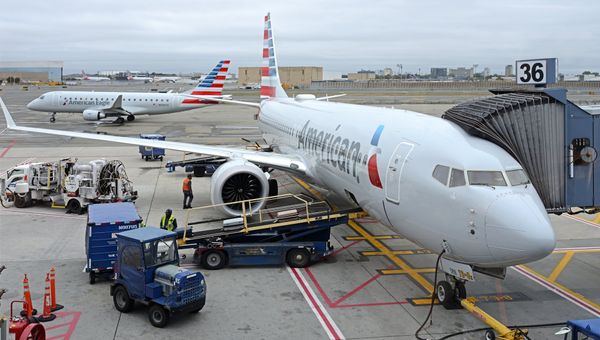In the coming year, low-cost U.S. airlines will work toward regaining their financial footing, while the major carriers will attempt to consolidate gains they've made at the expense of smaller rivals.
Meanwhile, American Airlines is likely to continue to push the envelope when it comes to distribution.
The ultralow-cost challenge
The latter half of 2023 saw ultralow-cost carriers (ULCCs) falter, even as full-service, global U.S. airlines recorded healthy profit margins.
For example, in the third quarter Spirit and Frontier reported pretax operating losses of 16.2% and 5.1%, respectively, while Delta and United reported pretax operating profits of 11.8% and 10.3%, respectively.
Strong international and premium demand have fueled the success of the global carriers, while soft domestic demand among budget travelers appears to be hurting low-cost carriers. The weak ULCC results are a reversal from prepandemic times, when low-cost airlines often bested the majors in terms of profit margins.
Ronan Murphy, a director for the global consulting firm Alton Aviation, said it's too early to know whether the shift will be long-term or merely a blip. Premium cabins, he said, have been an especially strong revenue driver for full-service airlines over the past couple of years. But it's not clear if that strength is sustainable.
Still, said Murphy, discount carriers will need to moderate growth to return to profitability, a step that will challenge business models that have historically leaned on fast expansion to help keep unit costs down.
"In developed markets there is only so much demand that can be stimulated. It limits how much you can grow, and in the U.S. we may be seeing those limits being hit," Murphy said.
Brad Beakley, CEO of the travel industry consultancy Hospitio, predicted that the full-service carriers will for the foreseeable future continue to outperform more leisure-oriented airlines, including Southwest, which for decades was an economic stalwart in the U.S. airline industry. Southwest, he said, doesn't have the cost advantages it once had relative to the Big Three and isn't as nimble as the ULCCs. The airline also took a major reputational hit during its epic operational collapse over the 2022 holiday season.
As for the ULCC sector, Beakley said that a potential game-changer would be if the proposed Spirit-JetBlue merger is allowed to go through. The trial over the Justice Department's attempt to block the partnership as anti-competitive wrapped up earlier this month and is now in the hands of the judge.
"If it happens, I think it will give some breathing room to the other ULCCs," Beakley said.
Conversely, if the merger is blocked, Spirit would likely search for another buyer, but at a price lower than the $3.8 billion JetBlue has agreed to pay. With the challenges now facing the ULCC sector, Beakley isn't sure Frontier, which had sought to purchase Spirit but was outbid by JetBlue, would still be interested.
Meanwhile, industry observers will also be watching for developments in 2024 related to the recently proposed acquisition of Hawaiian Airlines by Alaska, including how competition regulators at the Justice Department view the potential merger.
Will the NDC battle ramp up?
For travel advisors, the growing push by airlines to move the distribution world toward NDC acceptance was one of the biggest stories of 2023. American led that push and is now withholding the majority of its fares from corporate booking tools that aren't NDC-enabled, according to tracking by the TMC AmTrav.

American Airlines' planes at New York JFK. The airline's aggressive approach to NDC strategy will likely carry on into 2024. Photo Credit: Popova Valeriya/Shutterstock
Analyst Cory Garner, who runs the consulting firm Garner, said that in 2024 American will continue its effort to shift sales away from legacy Edifact GDS technology. But it and other airlines might also lose patience with the reticence of TMCs to adopt NDC. Through November, only about 2% of corporate tickets purchased through a travel agency were booked via NDC technology, ARC data shows. And TMCs accounted for just 2% of NDC tickets. TMCs have been reluctant to move to NDC for a variety of reasons, including the incentives they receive from legacy GDS bookings.
Next year, Garner predicts, American will take its case directly to corporate travelers in an effort to drive an increase in direct bookings.
"The traveler can shift channels overnight," he said.
American's first step in that direction, Garner believes, came in October, when the airline transformed its incentive program for unmanaged business travel, now called AAdvantage Business, so that it only applies to bookings via the American website or app and not to GDS bookings. The new program also offers enhanced status accrual benefits for business travelers.
Garner said he expects American to make stronger moves next year to wed status benefits with direct bookings.